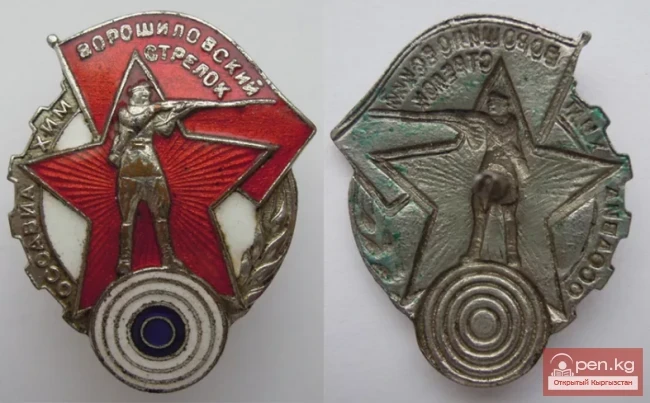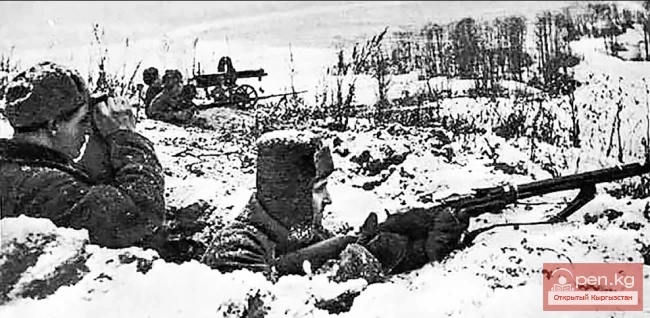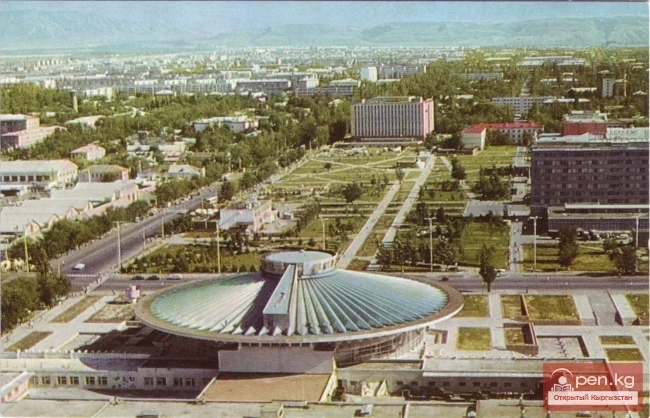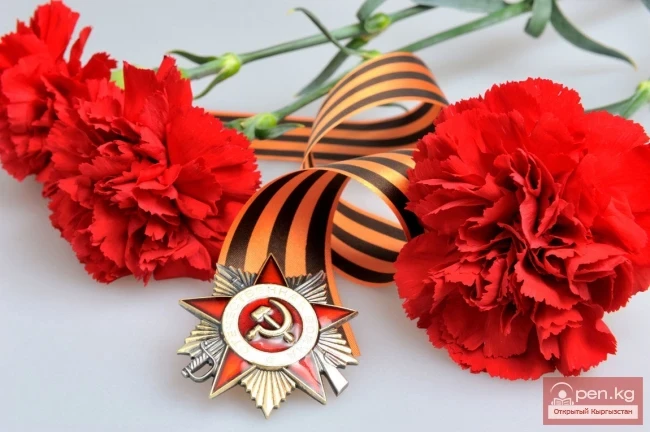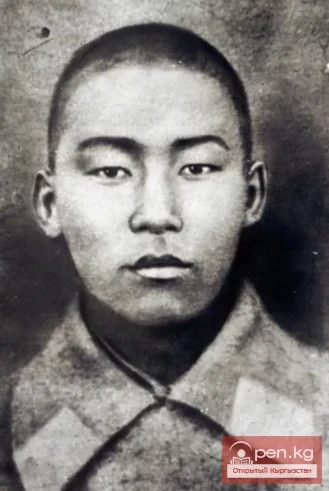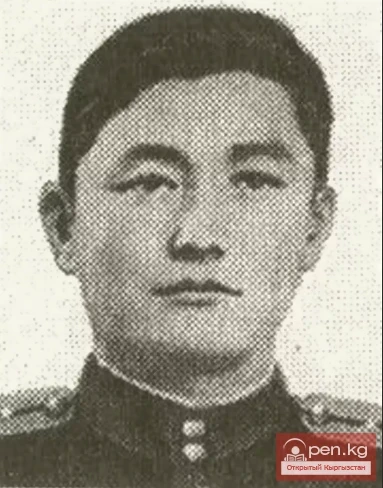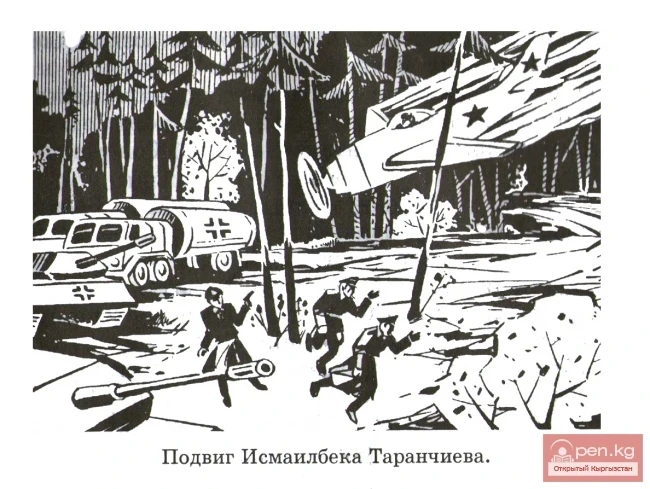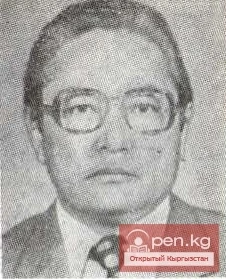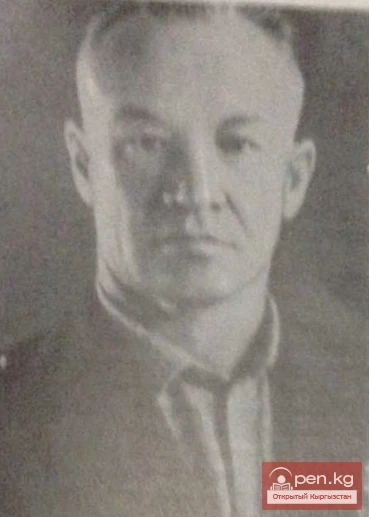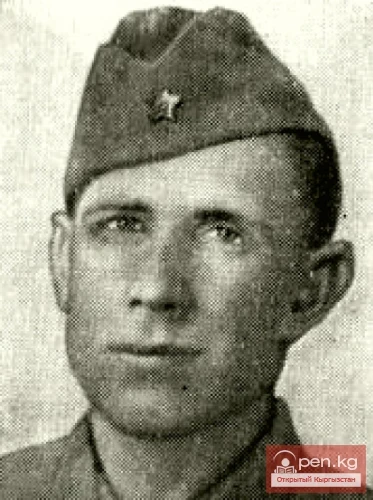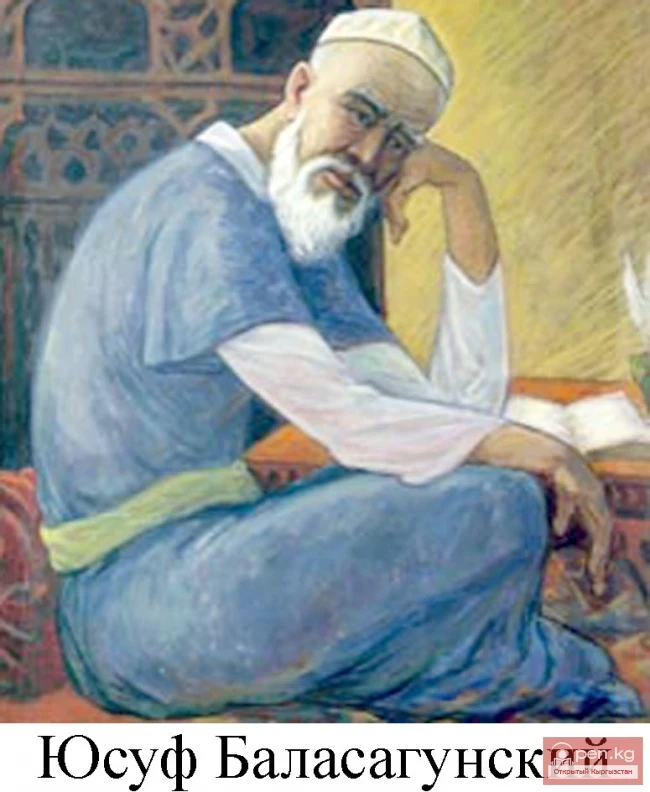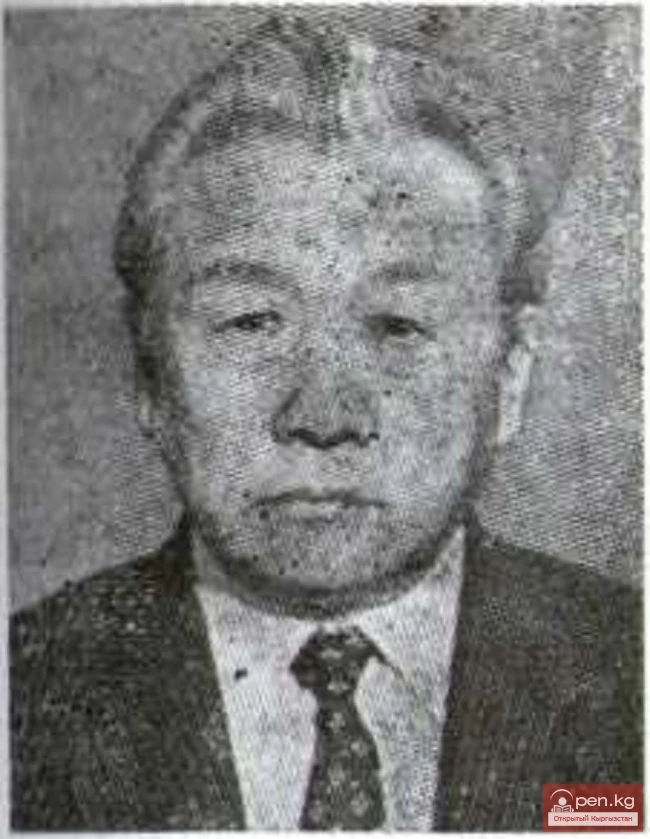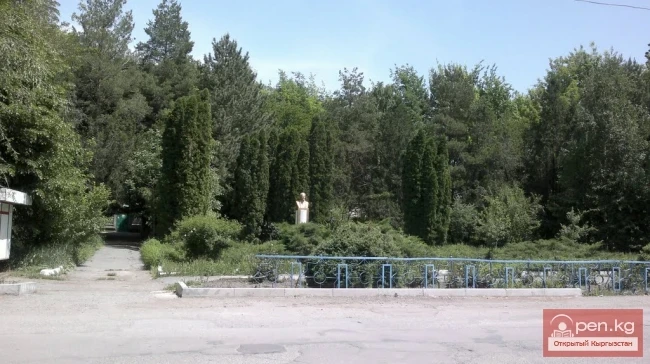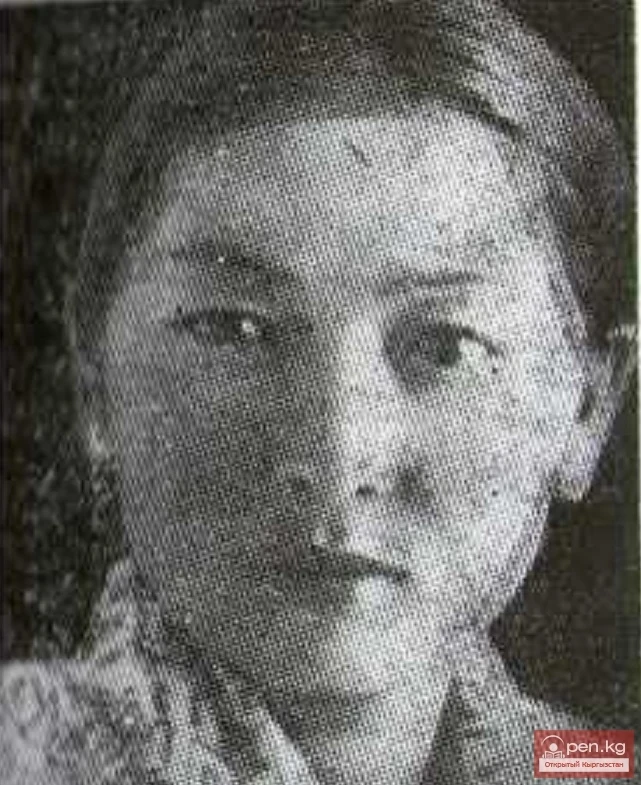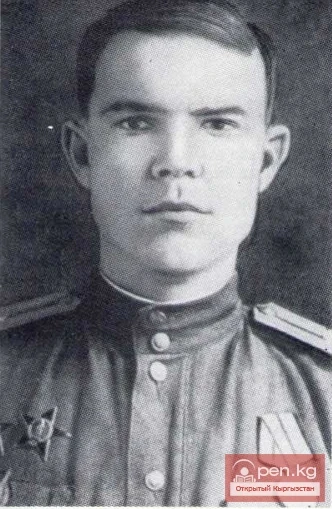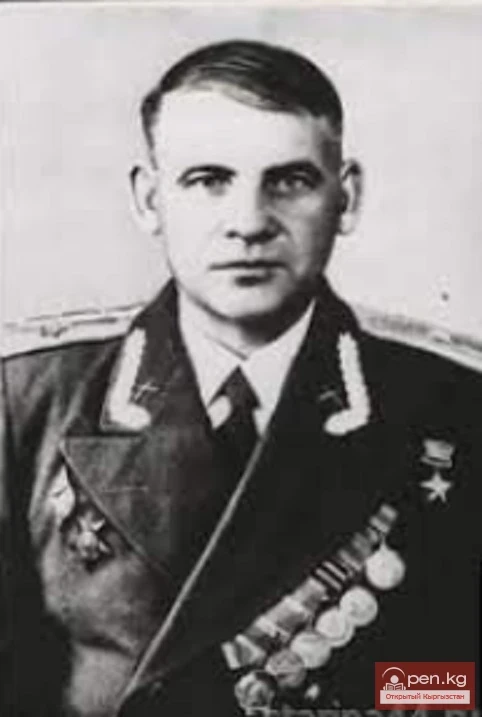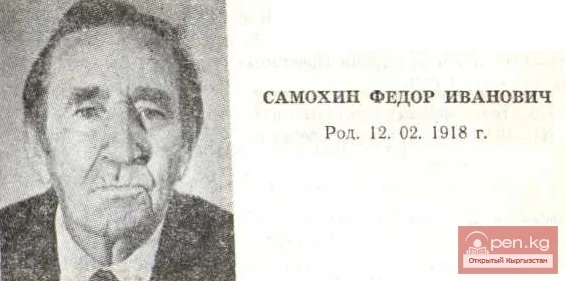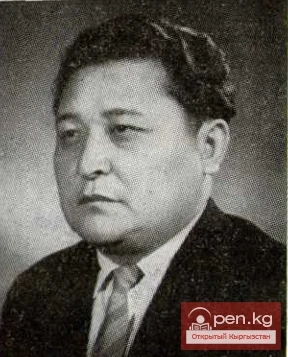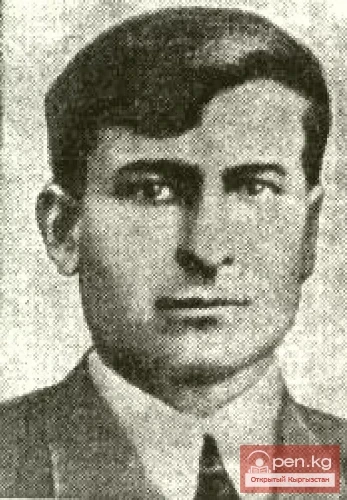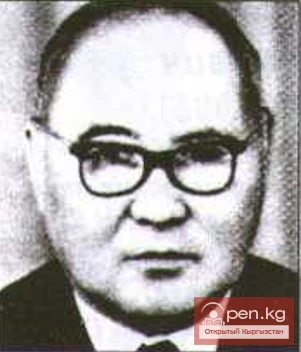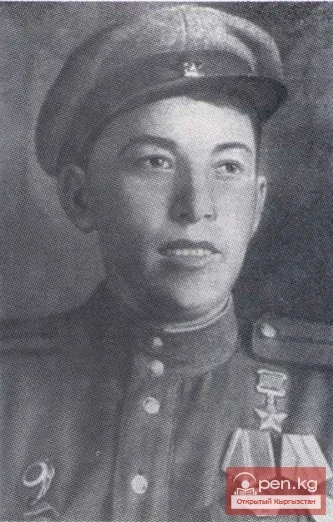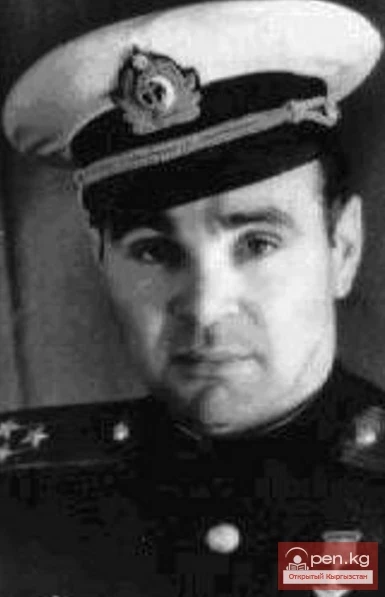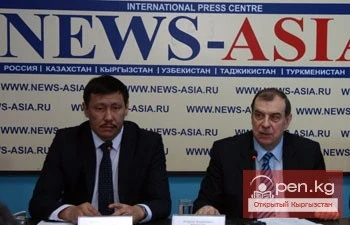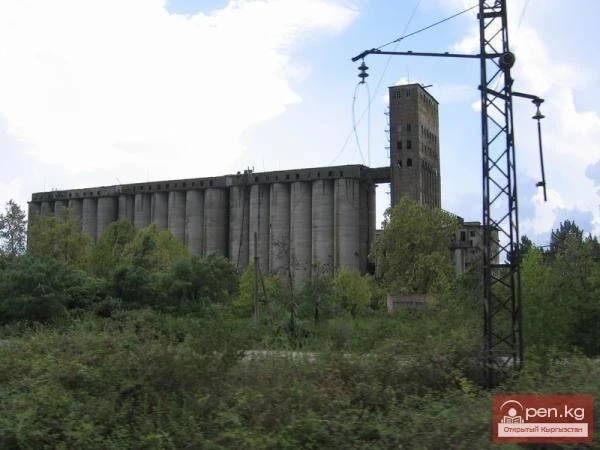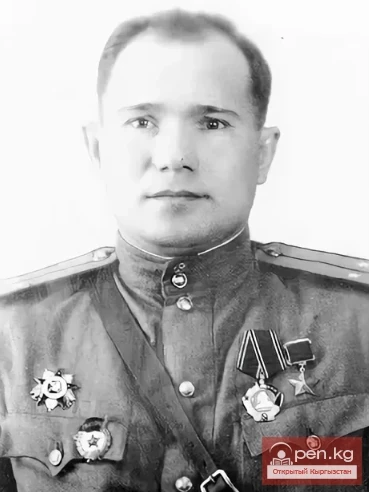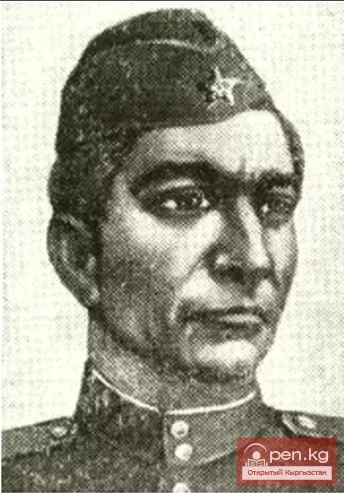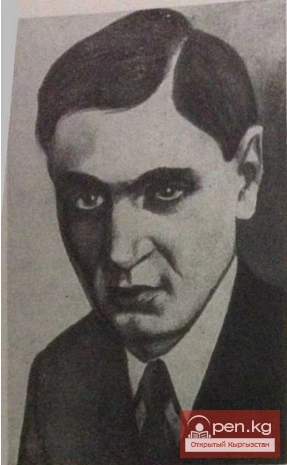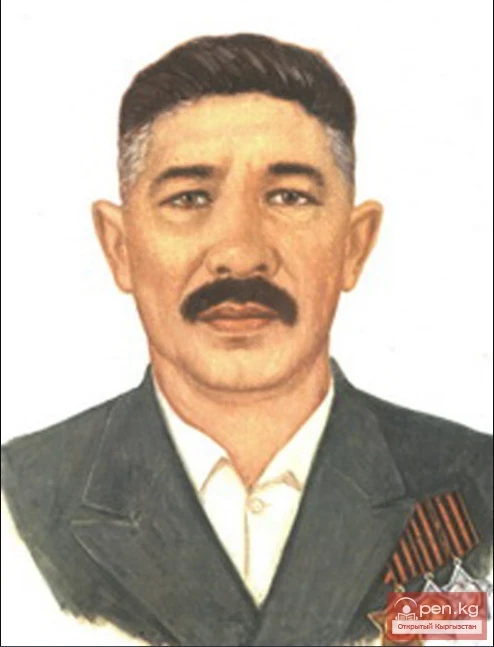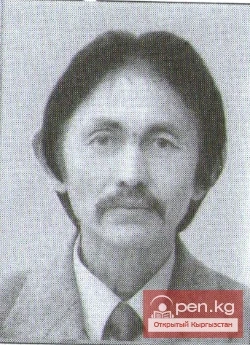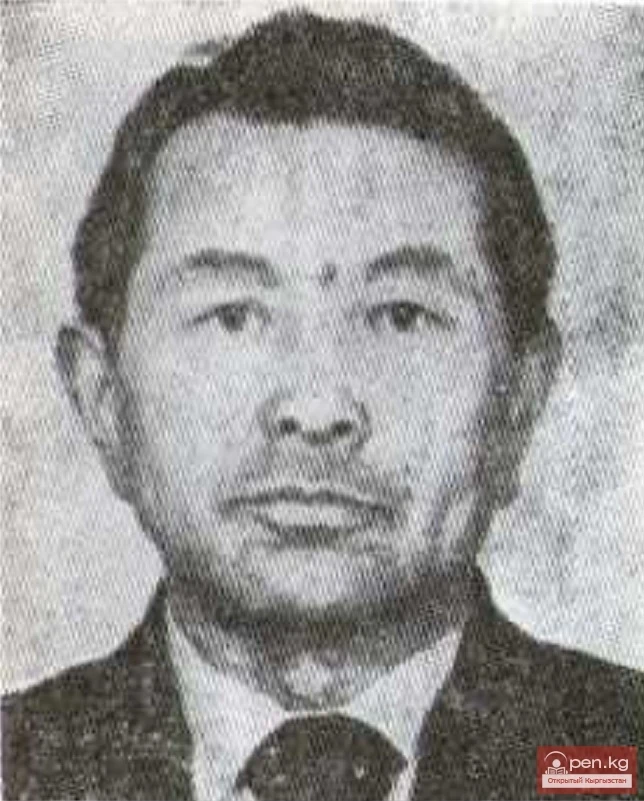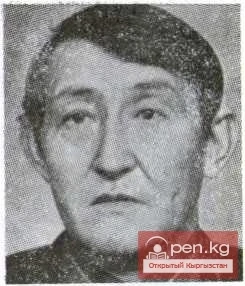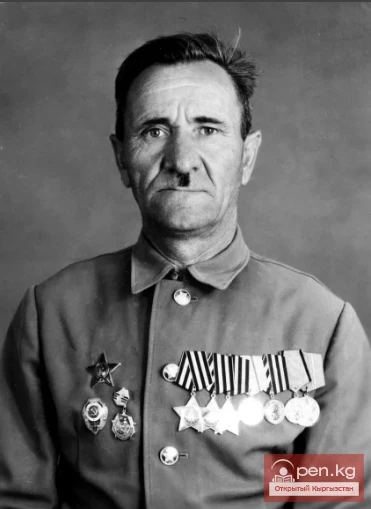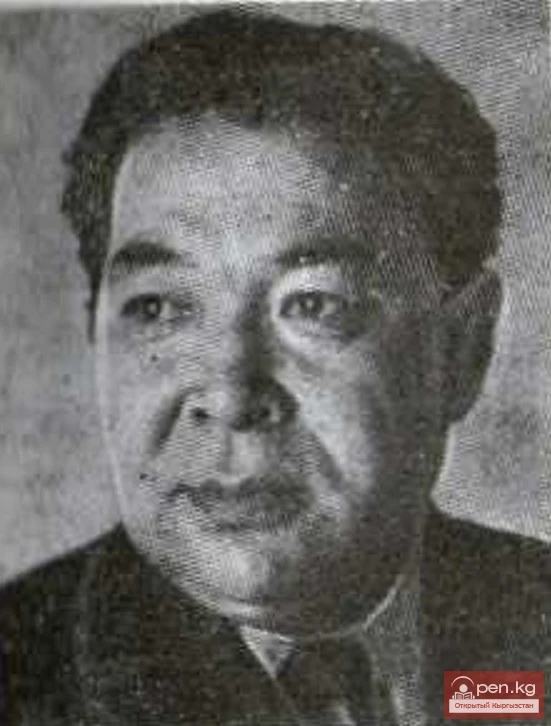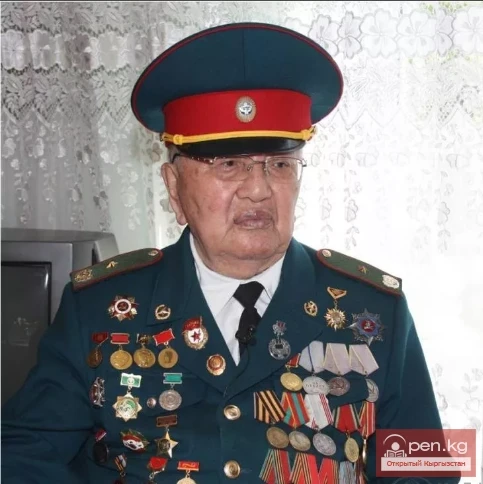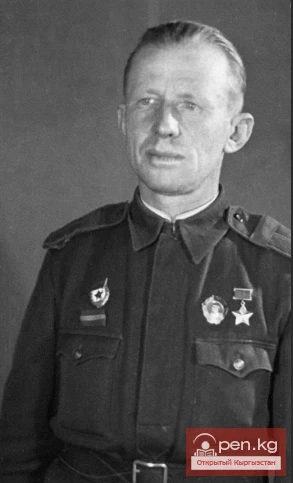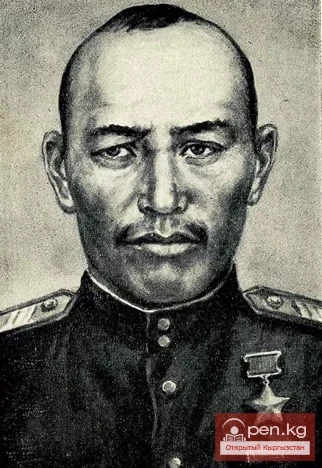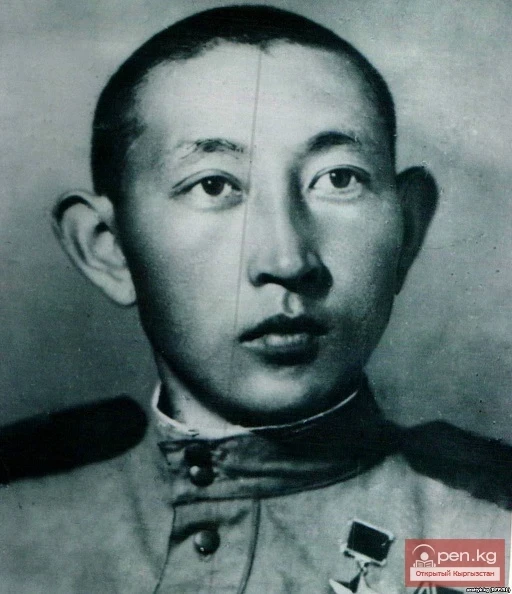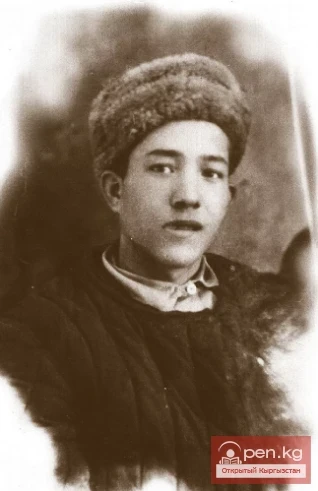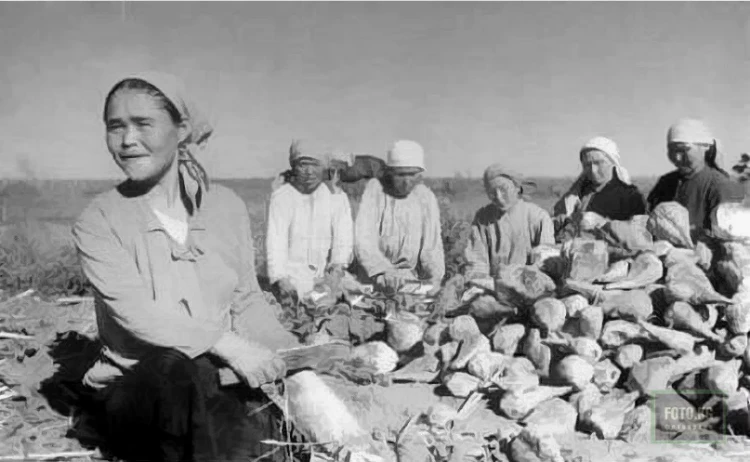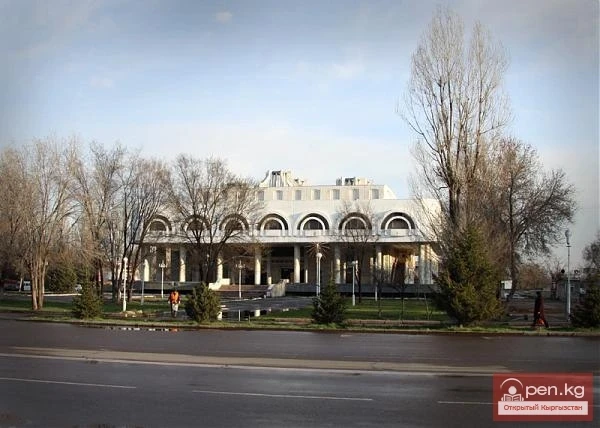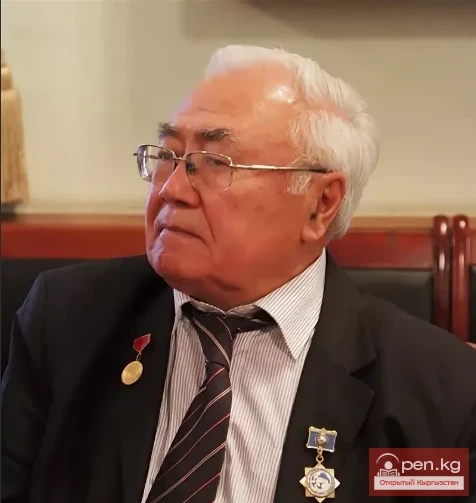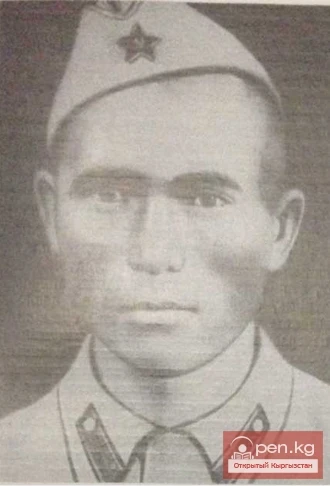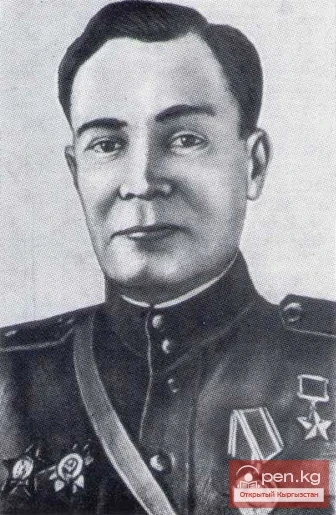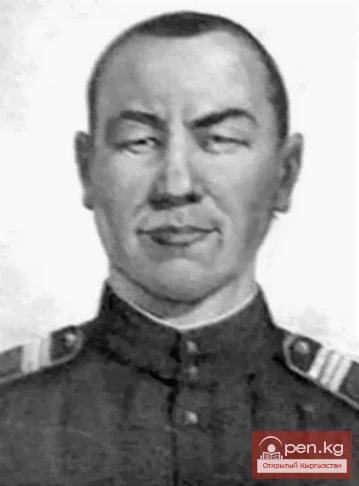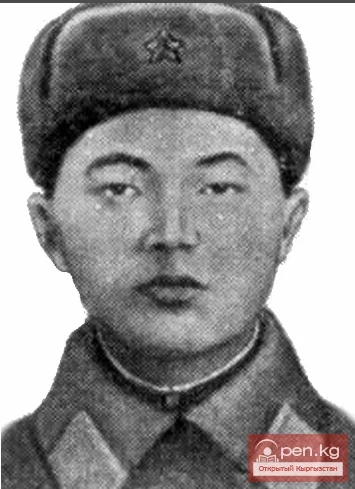
Hero of the Soviet Union Shopokov Duyshenkul
Duyshenkul Shopokov was born in 1913 in the village of Shalta, Sokuluk District, Kyrgyz SSR, in a family of a poor peasant. He was Kyrgyz. A member of the Communist Party of the Soviet Union. Before the war, he worked on a collective farm and was a member of the collective farm board.
At the end of August 1941, he became a soldier in the 316th Rifle Division.
He fought near Moscow as one of the 28 Panfilovites, defending the approaches to the capital in the area of the Volokolamsk Highway.
In the battle on November 16, 1941, he performed an immortal feat while holding back the assault of 50 enemy tanks near the Dubosekovo railway station. He died in this unequal battle.
For his displayed bravery, courage, and heroism, on July 21, 1942, Duyshenkul Shopokov was posthumously awarded the title of Hero of the Soviet Union.
The people honor the memory of the Hero. A collective farm where he worked is named after him, as well as one of the central streets in the city of Frunze, schools, pioneer detachments, and a memorial museum was opened in the village of Shalta, Sokuluk District, Kyrgyz SSR. A bust was erected in the city of Frunze on the Alley of Heroes along the "Young Guard" avenue.
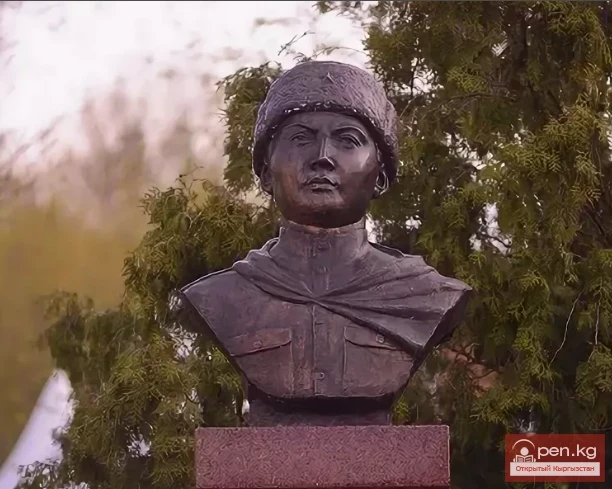
AND THERE IS NO PLACE TO RETREAT.
Life is given only once. Besides the one life allotted to a person on earth, he also has his purpose in society. It is not easy for a person to live a life worthy of the praise of society and the state, to remain in the annals of his native people, and if his deeds and creations are universal, to take his rightful place in the history of all humanity.
History knows many names immortalized in songs and legends; these names, as symbols of courage and fearlessness, pass from mouth to mouth, from generation to generation. The youth look up to them, and the elders educate their children by their example.
It is to such fortunate names that the name of the glorious son of the Kyrgyz people, Duyshenkul Shopokov, belongs, who was awarded the title of Hero of the Soviet Union, one of the defenders of the heart of our multinational Motherland—Moscow, who fell a hero's death during the Great Patriotic War.
There is no need to delve into the genealogy of Duyshenkul Shopokov up to the seventh generation, as is customary among the Kyrgyz. But it is worth reminding that he was born in 1913 in the village of Shalta, Sokuluk District, in a family of a poor peasant. Duyshenkul, like all children of poor Kyrgyz families of that time, grew up in hunger and cold, in humiliation and insults. He did not even receive a primary education, as he had to help his elderly parents, but he vowed to engage in self-education.
The youth of the fragile boy Duyshenkul was hard, yet he did not lose heart; he worked selflessly: plowing and sowing, herding sheep.
He was particularly inspired by the bright dawn of October, thanks to which the Kyrgyz people became equal among equals, moving from a yurt to permanent housing with a plot of land, acquiring a stable income. And when collectivization touched the Kyrgyz peasantry, Duyshenkul was the first to join the collective farm, followed by his parents.

In 1930, together with other villagers, Duyshenkul took to the plow. It was a joy to hear people say about him: "He loves the land as one can love one's own mother." For the first time in his life, he received two bags of wheat and forty-nine rubles for his labor on the collective farm. Now he understood the meaning of a new life, believing not only in his future but also in the bright tomorrow of his long-suffering people. His long-held dream of building a house and buying a cow was realized. During short breaks, he read everything he could get his hands on, jotting down interesting thoughts with a pencil stub.
Once, Duyshenkul came to the city on collective farm business and bought two books, "Kedeykan" and "Janış-Bayış." As soon as he returned to the village, he read them to his fellow villagers, and from then on, he earned the reputation of "moldo bala," meaning a literate young man. He was invited to visit so he could read smart books. In just six months, Duyshenkul memorized them and could recite them at weddings and celebrations.
Soon, Duyshenkul, as the most literate representative of the village, was appointed as a teacher at the newly opened school. By that time, he had joined the Komsomol. Six months later, an inspector from the district education department, Jusupek Nazarov, came for an inspection. To his considerable surprise, all of Duyshenkul's students could read and write. The inspector praised Duyshenkul then. But this praise touched the old man Shopok more than the teacher. When asked, "Who came to check on your son?" he replied with undisguised importance: "It was Jusupek, the son of Nazar, who studied in Leningrad..." Duyshenkul became the first teacher in his village.
Soon he was assigned to the most responsible position—warehouse manager of the grain storage. Duyshenkul cared deeply about the fate of the collective farm, accepting every achievement with admiration and grieving when things went poorly. One day he invited a well-known blacksmith, Sasykul, who lived in a neighboring village, to his home. After they started talking,
Duyshenkul, knowing the character of his guest, casually remarked:
— Sake, who in the area doesn't know that you have golden hands? Even Russians from Malovodnoye come to you for advice.
And so do we...
Maybe you could help build a forge? Although Sasykul initially declined, Duyshenkul understood that the famous craftsman would help. And so it happened: soon a fabulous forge appeared in their collective farm, and a store was built next to it to sell its products. Now everything was available in the collective farm's store. If before one had to travel far for a shovel, now the eyes were dazzled by the variety of hardware products made in-house.
In the 1930s, the Osoaviakhim (Society for Assistance to Defense, Aviation, and Chemical Construction) developed at a grand pace. All the youth joined the society, which indicated that sports were gaining mass development among us. The horsemen improved their skills in horseback riding, and the girls learned first aid. At Duyshenkul's initiative, a spacious glade was chosen for training in equestrian sports. On weekends, not only the residents of Shalta gathered here to pass the GTO standards but also the youth from neighboring villages.
Duyshenkul's contributions to organizing Osoaviakhim were significant. That is why the choice of location for holding major equestrian competitions of the Central Asian republics and Kazakhstan in 1937 fell on his village. At those competitions, Duyshenkul Shopokov took first place in saber and shooting contests. He was awarded the honorary title of "Voroshilov Marksman" of the first degree.
He then actively participated in army competitions and spent three months closely engaged in military-applied sports. His achievements became known throughout the republic. In 1938, he was one of the first among Komsomol members in the Chui Valley to be accepted into the ranks of the VKP(b).
Yet Duyshenkul Shopokov still lived with thoughts of the land. One day he gathered his fellow villagers, and they went to a neighboring Dungan village. At first, the people did not understand the purpose of their trip, but when Duyshenkul showed them the well-kept lands, where not a single weed could be found, the residents of Shalta felt embarrassed. They saw all sorts of vegetables in the Dungan's household plots, and the orchards were a true earthly paradise. And what did they have in Shalta? Overgrown gardens with thorns and weeds...
Kerimbubyu, Duyshenkul's future wife, was a beauty. No young man could pass by without being captivated by her beauty. Kerimbubyu remembers those unforgettable moonlit nights when young men and women entertained themselves, played, and sweetly conversed under the sprawling chinar tree at the foothills. She also recalled the day her husband left for the front. That day, she opened her grandmother's chest, which she received as a dowry, took out a karakul hat, and gently placed it on Duyshenkul's head.
Noticing his wife's heavy sighs, her husband tried to comfort her:
— You mustn't be so upset, dear... I have to be where everyone is. I will return, I will definitely return...
Just write, be sure to write, was all Kerimbubyu could manage to say.

...All this flashed through Kerimbubyu Shopokova's memory as if on a movie screen. She was tired today, having worked too much on the sugar beet plantation. She decided to take a little rest and hide from the scorching heat in the coolness of her home. However, this was rarely successful—no sooner had she crossed the threshold of her house than her gaze fell on the portrait of her smiling husband, who seemed to ask: "Well, dear, are you tired? Rest, my dear, work and raise our children..." And she took up her work again, now household chores...
This was how the Hitlerite invaders planned: by any means, to seize Moscow by the end of 1941. But this dark dream remained on paper. Hundreds of thousands of Soviet people rose to defend our capital. The 316th Rifle Division, commanded by the deputy of the Supreme Soviet of the Kyrgyz SSR, the organizer of this division, Major General I. V. Panfilov, stood at the approaches to Moscow. The Panfilovites occupied positions along the Volokolamsk Highway, along which the enemy was to advance on Moscow. Here, at the Dubosekovo railway station, 28 guardsmen-Panfilovites achieved their immortality.
The enemy took all measures for a successful breakthrough: additional tanks, mortars, and artillery were transferred to the division's defensive sector, not to mention automatic riflemen and motorcyclists...
On November 16, 1941, at dawn, an unequal, fierce, and bloody clash began. There was not a single patch of land in the Volokolamsk area that had not been hit by enemy shells or bombs. But the gunfire stopped as suddenly as it had begun. A mysterious silence fell, which could herald another enemy trick.
The Germans decided that the job was done and that they could confidently advance. Enemy tanks rushed into the attack, followed by automatic riflemen. As soon as the fascists approached within shooting distance, the command sounded: "Fire!"
The automatic riflemen took cover. Some tanks managed to break through to the trenches. A fierce battle ensued.
The enemy did not expect such fierce resistance. Not a single bullet from Duyshenkul Shopokov missed its target.

Enemy tanks crawled toward the trenches. Prepared, he threw a bundle of grenades under the treads. The earth shook from the roar. The second tank also spun like a top. The other five turned back. But a new group of tanks appeared on the right flank. Ten, fifteen, twenty... The hoarse voice of political instructor Klochkova was heard:
— There are now more tanks than us... Russia is vast, but there is no place to retreat. Behind us is Moscow!
...In the homeland of Duyshenkul Shopokov, a monument to him stands proudly on a hill. The surrounding fields are strewn with flowers, a gentle coolness wafting from the Jilamish Gorge tenderly washes Duyshenkul's face. The trees that form the alley leading to the monument are filled with the songs of birds...
Today is Victory Day. The people celebrate their victory over German fascism. Kerimbubyu Shopokova looks especially festive.

This holiday for her is both a celebration and a sorrow. Her children, grandchildren, and great-grandchildren are already waiting for her. In Kerimbubyu, they see their mother, grandmother, and great-grandmother, all running to meet her, showering her with bouquets and affectionate words...
By this time, we also arrived, and on behalf of the Writers' Union of the republic, we congratulated Kerimbubyu Shopokova on Victory Day and laid a wreath at the foot of the monument.
— Thank you, — Shopokova said, and pointing to her husband's monument, added — today he would have turned seventy. And he is still the same...
And we are growing old,— I agreed.
And you are already completely gray...
— Life is relentless,— I smiled. Pioneers and Komsomol members, representatives of the public from the capital and nearby districts came to the monument to the Hero of the Soviet Union Duyshenkul Shopokov. Thus began the celebrations dedicated to the brave son of the Kyrgyz people, who fell a hero's death in the great battle for the freedom of the Motherland.
M. DJANGAZIEV
